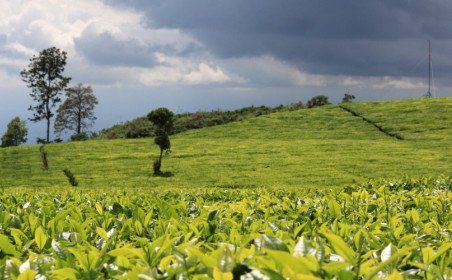(Ecns.cn) – The African continent has become more and more attractive for Chinese private enterprises since the establishment of the free trade area of the Southern African Development Community in August 2008 and the commencement of operations by the East African Community Common Market in July 2010.
Without tariffs and trade barriers, many foreign enterprises can expect the same treatment when producing and selling goods in some African countries.
Hebei Hanhe Investment Co. is one of those groundbreaking enterprises. After two years of trial planting and experimentation, it has now begun to cultivate vegetables on a large scale, covering 2,600 mu (173 hectares) of land in Uganda, with plans of expanding to 260,000 mu (17,333 hectares) in the near future.
The work is considered a flagship project involving private Chinese enterprises engaged in the "going out" strategy. Uganda has long been a large agricultural country with low per capita income. Although the country put into practice a new Immigration Act in October of 2010 which imposes restrictions on foreigners doing short-term business there, it still offers Chinese industrialists preferential policies. For enterprises here, that means opportunity.
Opportunities in Uganda
Like most African countries, agriculture production has historically been Uganda's main industry. Agriculture accounted for 56% of the economy in 1986, with coffee as its main export. However, due to low productivity, the country has always been burdened with an acute food shortage.
Even so, soil conditions and climate are favorable for good agricultural harvests in Uganda. With annual cropping in the north, local conditions allow for continuous cultivation in the south. But by the late 1990s, statistics showed that only about one-third of the country's estimated area of arable land was under cultivation.
A few years ago, the news of arriving Chinese enterprises cheered up local government officials in Uganda. They believed Chinese industrialists could help them with the declining agriculture, especially in a time of financial crisis when global food prices began to surge.
At that time, Hebei Hanhe Investment Co. smelled opportunity and made a decisive step onto the African continent.
In December 2010, as Election Day drew near in Uganda, political candidates were busy competing with one another by all possible means. Two district chairmen near the Hanhe Farm offered to help out there and the Luweero District Government even promised to provide electricity for the farm.
Qiu Lijun, a staff member of Hanhe Farm, said he never thought the farm would become the source of a political showcase in Uganda and draw so much attention. Nevertheless, utility poles and electrical connection equipment have all since been installed at the farm.
Countries such as South Korea have also been eyeing opportunities in Africa. A South Korean company rented an office in Kampala in February 2010, and planned to invest $5 billion to purchase land in the country.


















